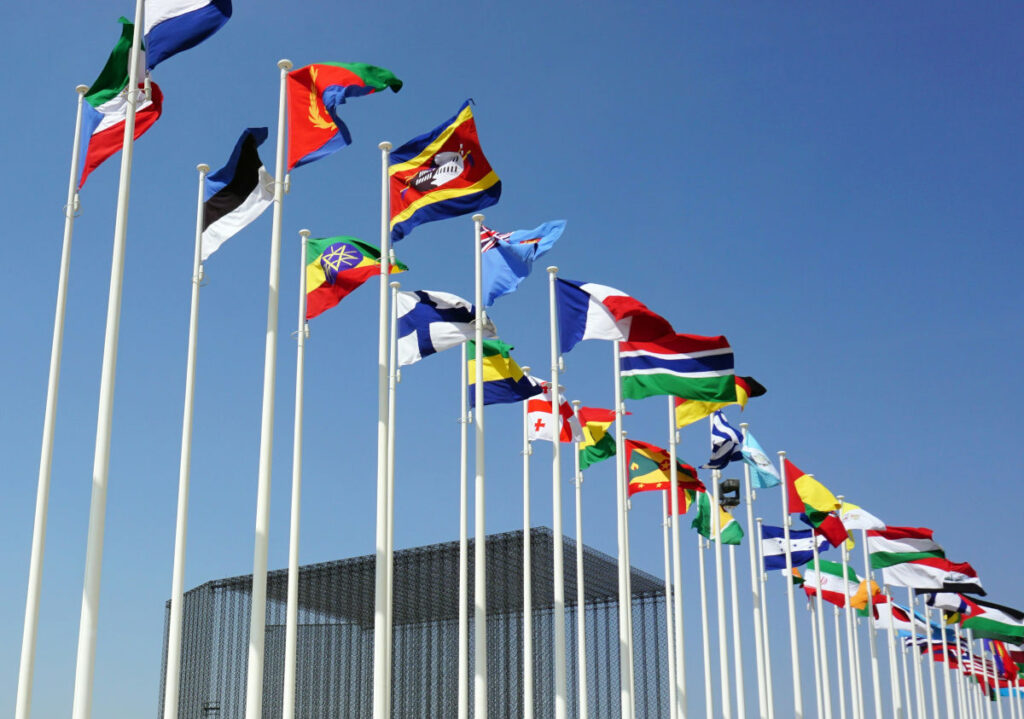COP28 is expected to be the COP of ‘implementation’. We’ve seen COP’s focus on promises and pledges historically but now that the Global Stocktake is going to be a central part of this conference there won’t be many hiding places for those involved. Or will there?
I think it best to take the COPs with a pinch of salt. Yes, they are drawing plenty of attention to important climate issues, and the needle has been moved by some of the previous key COPs. For example, industrialised countries committing to reducing emissions in Kyoto, 1997; a 2°C target set in Cancun, 2010 or the historic breakthrough of the Paris Agreement in 2015.
But, despite the obvious issues of this years’ COP hosts, COP has historically been filled with empty promises and slow action. The pace of government implementation is rarely rapid and domestic politics are often prioritised, so I see no reason to expect anything different from this year’s event. In all fairness, subject to existential crises it is generally not the role of government to act hastily and ambitiously, even in climate policy because of the complexities of doing so, and the unintended consequences. Consider the Sri Lankan or the Dutch government’s experiences of implementing policy in real life and you’ll see why it’s never as simple as agreeing and introducing aggressive regulation.

COP 28 Wish List
However, there are some real and structural actions that we could wish to come out of COP28, and I’d like to take a moment to suspect reality and dream of what those could be.
- New Net Zero – The urgency of the Global Stocktake and State’s lack of action contrast starkly. The reason is actually because Net Zero is flawed and we are slowly finding out that many organisations will not be able to follow the same principles and targets that are applied at a country level. The current methodology from SBTi has aligned companies with the aim of the UN’s Paris Agreement, however it’s limits to growth approach means only the fortunate few can implement it. What I would like to see from COP28 is some course correction towards clearer and more inclusive guidelines for businesses so everyday organisations have a working standard that they can participate in.
- Find and Fund Innovation – The tech we have today will not be adequate for us to reach the climate targets that we’ve set. We need rapid investment in climate tech R&D and exemptions for those companies who are scaling up the implementation of these solutions. There are some very exciting technologies in labs that may just provide us with the solutions we need, but on a typical development pathway we’re looking at the 2030s before they’re available. COPs often talk about funding for climate solutions, but the scale and targeting of the funding leaves a lot to be desired. I’d like to see some realistic numbers and some concrete commitments in this space.
- SME Initiatives – Either knowingly or not, the current regulation and initiatives are all geared towards big businesses and therefore SMEs are often neglected. The assumption is seemingly that the momentum and clout from large global corporates will lead to supply chain pressure which will force other companies, mainly SMEs to comply. What isn’t clear is how these SMEs are expected to participate in this race as they typically don’t have the resources and purchasing power of their larger counterparts. SMEs require a different route and philosophy when it comes to decarbonisation. Expecting them to get in line and bear the brunt of emissions cuts is destined for failure so a decarbonisation definition that SMEs can work within is essential.
Greenwishing
This is only a short wish list. There are many other actions that would make a major difference this COP, but even dreams need to be grounded in reality at some point. If there’s one thing to take away from this wish list, it’s that the current definitions don’t work for most organisations. Eight Versa works with SMEs across a variety of industries, and we see the issues of greenwishing every week. SMEs are expected to be the bulk of employment, be a driver of economic growth and lower their emissions as part of a bigger company’s supply chain. All with inadequate state and policy setting (COP) infrastructure.

However, there are other sources for inspiration, and you can take encouragement from the many organisations who are doing what they can out of principle and thrashing out their own robust and actionable pathway. You don’t need to wait to be told what to do, the first step to implementing decarbonisation measures is to map where your impacts are and then start engaging your supplier network. Remember these actions compound, and once you start building momentum like these organisations it’s surprisingly easy to become a leader and inspire others to do their bit.
SME innovation is often overlooked, but it is these organisations that will grow and become the big businesses and disrupters of tomorrow. If we want to see more participation from all types of businesses, then we need a clearer and more inclusive decarbonisation pathway that doesn’t disregard the innovative SMEs of the world.
Chris Hocknell, Director
Chris brings over 18 years’ experience of supporting the built environment and corporate world with their sustainability goals. Specialising in sustainability strategy development, Chris works closely with clients to assess and understand their carbon and environmental footprint.






